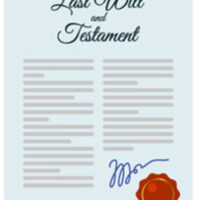Category Archives: Estate Planning

What are the Different Types of Adult Guardianship in Virginia?
There comes a point in some folks’ lives where they need someone to help them make basic decisions, manage their affairs, and act on their behalf. This is never easy. You may be struggling with questions concerning how to protect their well-being while at the same time honoring their wishes. In Virginia, guardianship provides… Read More »

What are the Different Types of Power of Attorney in Virginia?
One of the most important estate planning tools you should consider is the power of attorney (POA). POAs give someone you trust the authority to act on your behalf under specific circumstances. This could mean managing finances, making healthcare decisions, or handling your day-to-day responsibilities. POAs provide peace of mind when planning for the… Read More »

What Happens If I Lose My Will in Virginia?
What happens when you can’t find your loved one’s will after they have passed? If your attempts to search for the will have been unsuccessful, you may be wondering what steps you should now take if you can’t find the original. Virginia law specifically outlines options for addressing a lost will situation. This includes… Read More »

What is a Holographic Will?
The holographic will is the most basic form of will that you can produce. The term “holograph” refers to the fact that the will is hand-written. In this article, the Law Office of Angela N. Manz will discuss holographic wills, their basic requirements, pertinent definitions, and more. Defining “holographic will” A holographic will is… Read More »

What’s the Difference Between a Living Will and a Regular Will in Virginia?
Ambiguous terms can be confusing, and many folks can’t tell you the difference between a living will and a standard will. To boot, there are also living trusts, which can add to the confusion. In this article, the Law Office of Angela N. Manz will discuss the difference between a living will and a… Read More »

What is a Pour-Over Will?
A pour-over will is a specific type of will that is designed to work in concert with a revocable living trust. It transfers any assets that were not included in the trust into a revocable living trust after you pass. In other words, if you forgot to include certain assets in your original will,… Read More »

What is a Limited Power of Attorney in Virginia?
In Virginia, a limited power of attorney is a legal document that appoints someone (called an “agent” or “attorney in fact”) to act on your behalf for very specific tasks or transactions. A general power of attorney grants the agent broad authority. On the other hand, limited power of attorney restricts your agent’s powers… Read More »

What Happens if You Die Without a Will in Virginia?
Clients sometimes pose the question, “What would happen if I died without a will?” It’s a common question that concerns folks who are worried about the cost of creating a will, how the will fits into their larger estate plan, or when older parents hesitate to finalize their estate plan. These are valid concerns,… Read More »

What Are the Different Types of Power of Attorney in Virginia?
One of the most important estate planning tools you can consider is a power of attorney (POA). These essential estate planning documents give someone you trust the authority to act on your behalf in specific circumstances. This includes managing finances, making health care decisions, or handling day-to-day responsibilities. Your POA will act as a… Read More »

Is it Ever Too Early to Draft an Estate Plan?
Well, if you ask an estate planning attorney, it’s never too early to create an estate plan. In truth, however, this is excellent advice. Creating a comprehensive estate plan is crucial to securing your financial future and ensuring your assets are distributed according to your will once you pass. Most folks delay this important… Read More »
